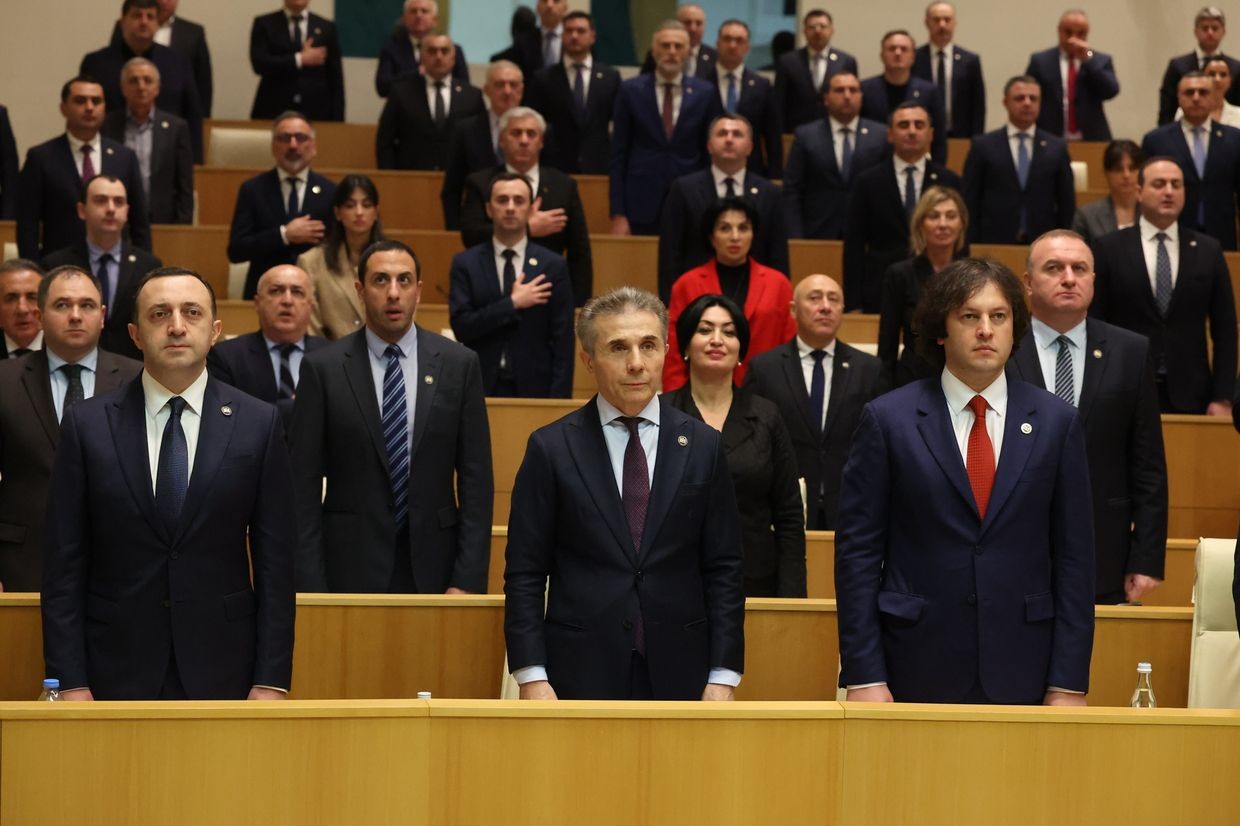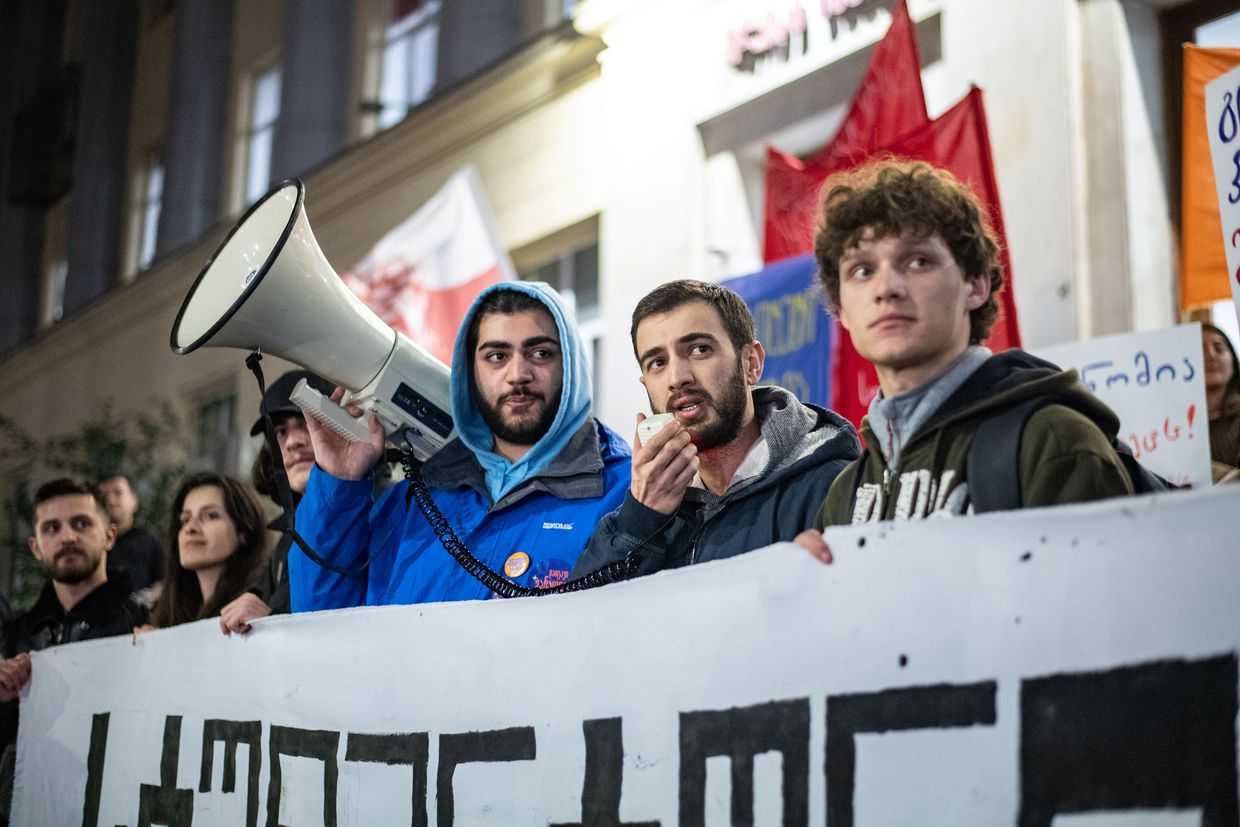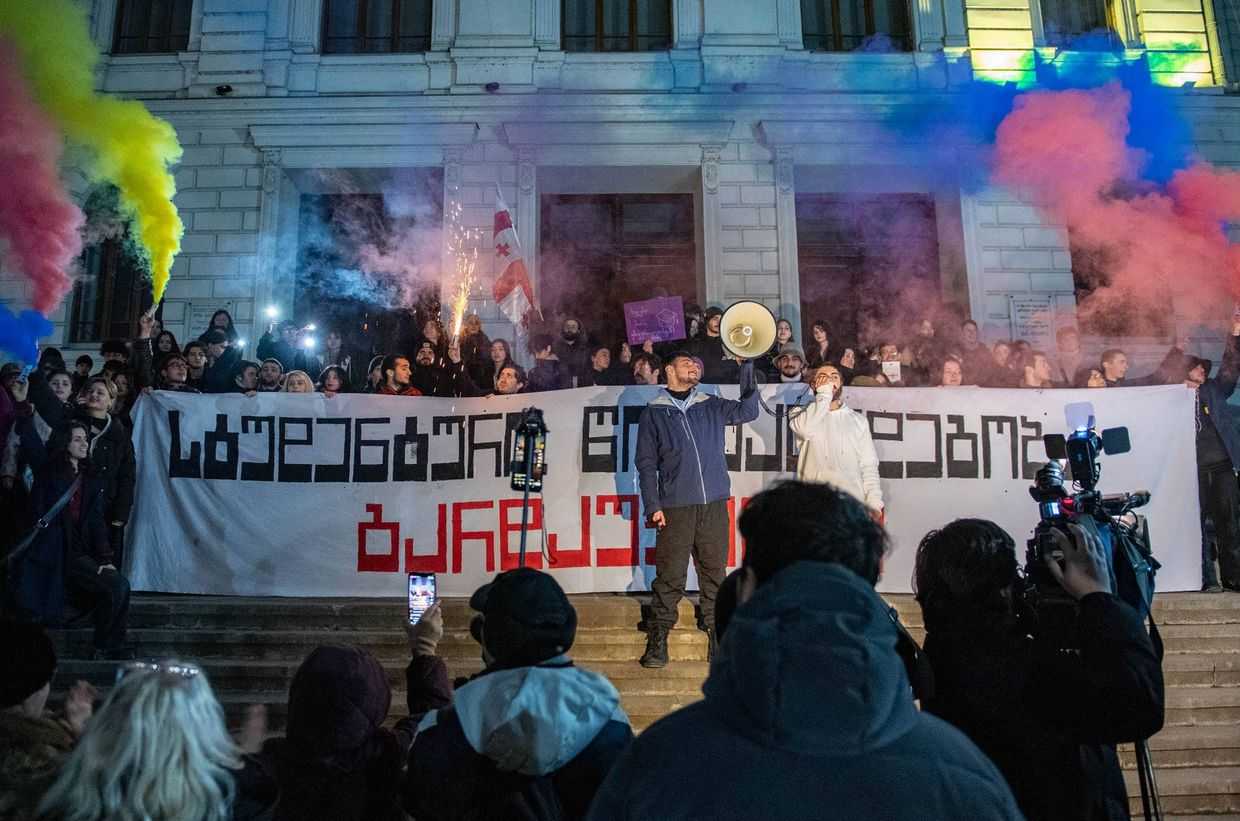Georgian Dream introduces word-for-word ‘translation’ of US FARA legislation, previously called ‘a total disaster’ by PM Kobakhidze

Georgian Dream has registered a bill in parliament that it claims is the Georgian translation of the US Foreign Agents Registration Act (FARA), with the aim of targeting civil society organisations. Prime Minister Irakli Kobakhidze had previously described FARA as a ‘total disaster’.
On Monday, the bill was submitted to the parliamentary bureau session, where it was approved for referral to the Legal Issues Committee by a majority vote.
However, the head of parliament’s legal department, Aleksandre Tabatadze, stated during the session that the proposed initiative contains ‘certain legal and substantive inaccuracies’ that would need to be clarified later.
According to Tabatadze, the translation is a word-for-word copy of FARA, containing a number of terms that are irrelevant to the Georgian context, including references to Congress, the Library of Congress, the State Department, the Department of Justice, the Secretary of the Treasury, the Postmaster General, and the President of the United States.
Archil Gorduadze, a Georgian Dream MP and chair of the legal affairs committee, claimed that the literal translation was chosen to avoid any ‘insinuations’. The same explanation was offered by Parliamentary Speaker Shalva Papuashvili.
‘Any speculation that the Georgian Parliament would adopt a law inconsistent with international standards will end here’, Papuashvili said, adding that ‘every word, every term, every comma, every period is identical to the US law’.
‘During the parliamentary review process, the relevant terminology will be aligned with the appropriate norms of the Georgian legal framework’, he said.
The ‘translation of FARA’ is one of the bills which Georgian Dream announced in early February. The list also includes a media law that would restrict media funding from foreign sources and ‘establish standards for media objectivity and journalistic ethics’, as well as ‘define institutional mechanisms for monitoring and safeguarding these standards’.
With the bill, which Georgian Dream insists is analogous to FARA, the ruling party seeks to replace the controversial foreign agent law targeting civil society organisations — a law that failed to pass amid large protests and clashes in 2023 but was ultimately passed in 2024, despite continued protests.
The foreign agent law labels any civil society or media organisation that receives at least 20% of its funding from abroad ‘organisations carrying out the interests of a foreign power’. Such organisations must register as foreign agents in a special registry and are subject to monitoring every six months, which lawyers have warned could include forcing them to hand over internal communications and confidential sources.
Organisations that do not comply are subject to large fines. Many civil society and media organisations in Georgia receive their funding from the EU.
Earlier this month, while announcing the new bills, Georgian Dream’s parliamentary leader Mamuka Mdinaradze referred to the existing law as a ‘lighter version’ of FARA.
What is FARA?
Under FARA, a foreign agent is defined as any person (legal or physical) who is under the control of, or acts at the direction of, a foreign power and acts in the interests of that foreign power.
In addition, under FARA, media organisations, even if foreign funded and foreign owned, are not labeled as foreign agents as long as their policies are not actively directed by a foreign power.
FARA was originally enacted in 1938, in the leadup to World War II, when the US was facing sustained threats of foreign influence from Nazi Germany and the Soviet Union, which were both considered to be hostile powers.
As a result, the legislation was targeted at individuals and countries considered to be foes of the US. Until President Donald Trump's first term in 2017, it was rarely employed beyond being used to force foreign lobbyists to register.
In its report on the foreign agent law in May 2024, the Venice Commission also dismissed comparisons between FARA and the controversial Georgian law, saying that the US ‘does not generally require’ NGOs and media organisations which have received foreign grants and support to register as foreign agents under FARA.
‘In sharp contrast to FARA and similar laws, the Georgian Law presupposes that anyone receiving foreign support will act in pursuit of the interests of the foreign funder (referred to as “foreign power”), by triggering an automatic, unevidenced, and irrebuttable presumption of some form of influence or control of the work of the recipient by the donor’, the report continued.
Mdinaradze said that the new law regulating civil society organisations was needed because ‘several dozens of the wealthiest’ organisations have not registered as foreign agents.
Georgian Dream has not provided the details of how it plans to regulate the activities of civil society organizations through FARA-style legislation.
In the past, Kobakhidze called FARA ‘disaster’
In 2023, when Georgian Dream and its allies first attempted to pass the controversial foreign agents bill, they repeatedly tried to persuade the public that the law was based on Western legislation.
Those attempts intensified as a response to the branding of the controversial bill as the ‘Russian law’, with ‘No to the Russian law’ becoming the main slogan of the protests against the legislation. The label reflected widespread concerns that the law was equivalent to the foreign agents law passed in Russia in 2012, which the Kremlin has since used to dismantle numerous civil society and media organisations.
At the time, the parliamentary majority also referred to FARA, claiming that the controversial law was based on American legislation, but the Georgian version was ‘more liberal’.
According to the ruling party's ally, People’s Power, whose members were the official authors of the bill, the initial intent was to directly translate the US law, but Georgian Dream opposed it because of FARA’s ostensible strict nature.
‘From the very beginning, we had the proposal to present a direct analogue of the American version for parliamentary discussion, but it was [Georgian Dream leadership’s] suggestion to consider a more liberal law and not to present the direct American legislation’, said People’s Power representative Dimitri Khundadze at a briefing in February 2023.
Kobakhidze, who was chairman of Georgian Dream at the time, called FARA a ‘total disaster’, adding that ‘we could not tolerate to adopt such a law in the Georgian Parliament’.
However, shortly after Kobakhidze's statement, People’s Power still decided to present a ‘direct translation’ of the US law in parliament as an alternative. They explained that this decision was made to avoid leaving room for ‘speculation’ — a move they argued would prevent opponents from using the term ‘Russian’.
In the end, the parliamentary majority only passed the initial bill on the first reading, which led to mass street protests and, as a result, a temporary retreat by Georgian Dream and the withdrawal of the bill.
At that time, the ‘direct translation’ of FARA remained undiscussed.
Other new legislation
The ruling party also announced plans for additional legislative initiatives and amendments, including a package that would remove any obligations for the state to allow civil society to take part in legislative decision-making processes.
Mdinaradze said that public sector institutions can choose to not receive foreign aid at the discretion of the public institution’s head. These restrictions apply to direct and indirect salary supplements and funding for training or visits.
He further outlined plans to introduce stricter drug laws, as well as changes to laws regarding juvenile justice and migration.
Georgian Dream additionally announced plans to simplify the appointments or dismissal of heads of legal entities under public institutions, which he said will be determined by ministers or the heads of public institutions.
Georgian Dream blames the ‘Deep State’
The ruling party has already changed public sector-related legislation amidst ongoing anti-government protests, simplifying the dismissal of public employees. Following this, several public servants complained that they were dismissed due to their political views.
Amid ongoing anti-government protests in Georgia, which began in late November after Georgian Dream suspended the country’s bid for EU membership, the ruling party has passed numerous legislative changes critics view to be repressive.
Among the laws already passed are those that significantly increase administrative fines and detention times for various activities related to protest gatherings.
In its latest legislative announcement, Georgian Dream revealed plans to ‘restore’ articles for treason in the criminal code. Kobakhidze has defended those laws as being ‘part of the fight against the “Deep State”’. This term is a recent addition to the ruling party’s dictionary, with the ‘Deep State’ being blamed for the attempts to undermine Georgia’s security, as well as for the unrest and wars happening around the world in recent years.











